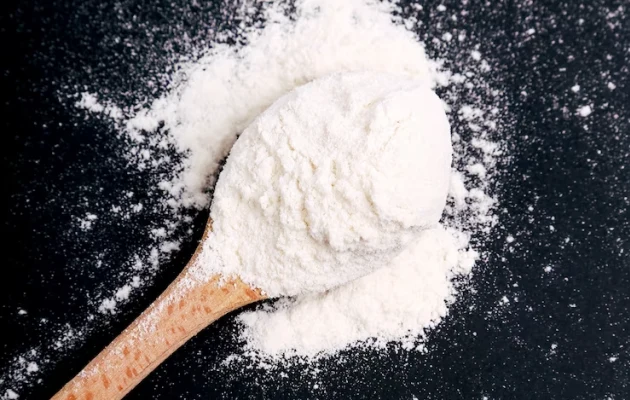Aspartame is an artificial sweetener that is widely used as a sugar substitute in a variety of food and beverage products.
Here are some key points about aspartame:
- Sweetness and Taste:Aspartame is approximately 200 times sweeter than table sugar (sucrose), which allows for a significant reduction in the amount of added sugar in food and beverages. It provides a sweet taste without the caloric content of sugar.
- Composition and Metabolism:Aspartame is made up of two amino acids, phenylalanine and aspartic acid, linked together with a methyl group. When consumed, aspartame is broken down into its individual components in the body and metabolized
- Caloric Value:Aspartame is virtually calorie-free. Because it is not metabolized like sugar, it provides a sweet taste without contributing to the caloric content of food or beverages
- Flavor Profile: Aspartame provides a clean, sweet taste without a noticeable aftertaste. It is often preferred over other artificial sweeteners due to its similarity to the taste of sugar.
Applications
Aspartame is used in a wide range of food and beverage products, including:
- Carbonated Beverages: It is used to sweeten diet sodas and other carbonated drinks as a sugar substitute.
- Tabletop Sweeteners:Aspartame is available in powdered or tablet form for individual use as a sugar substitute in coffee, tea, and other beverages
- Baked Goods: It is used in the production of various baked goods, such as cookies, cakes, and pastries, to reduce sugar content while maintaining sweetness.
- Dairy Products: Aspartame is used in yogurts, flavored milk, and other dairy products to provide sweetness without adding calories.
- Confectionery: It is used in sugar-free candies, chewing gums, and other confectionery items as a sugar substitute.
- Pharmaceuticals: Aspartame is sometimes used as a sweetener in certain pharmaceutical products, including chewable tablets, syrups, and oral suspensions.
Safety
Aspartame has been extensively studied and approved for use as a food additive by regulatory authorities worldwide, including the U.S. Food and Drug Administration (FDA) and the European Food Safety Authority (EFSA). It is considered safe for consumption by the general population, except for individuals with a rare genetic disorder called phenylketonuria (PKU), as aspartame contains phenylalanine.




